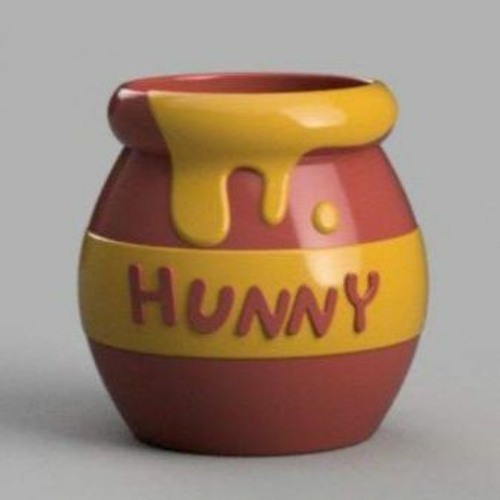Why Honey Is Dangerous for Babies: When It's Safe and Potential Risks
Why Honey Is Dangerous for Babies: When It's Safe and Potential Risks
Introduction
Honey is often celebrated for its natural sweetness and health benefits, but for babies under 12 months, honey can pose serious health risks. It’s crucial for parents to understand why honey should be avoided for infants, when it becomes safe to introduce, and the potential dangers associated with it. In this blog, we’ll explore why honey is dangerous for babies, when it’s safe to introduce, and share examples of health complications caused by honey.
1. Why Is Honey Dangerous for Babies?
Honey is dangerous for infants because it can contain Clostridium botulinum spores, which can cause infant botulism, a rare but serious illness.
A. What Is Infant Botulism?
- Cause: Clostridium botulinum spores, found in honey, can grow in a baby’s immature digestive system, releasing toxins that affect the nervous system.
- Symptoms:
- Weakness or poor muscle tone.
- Constipation (often the first sign).
- Difficulty feeding or sucking.
- Weak cry or trouble breathing.
B. Why Are Babies More Vulnerable?
- Immature Gut: A baby’s digestive system lacks the acidity and bacteria needed to kill the spores, allowing them to grow and produce toxins.
- Age Limit: Babies under 12 months are most at risk. After their first birthday, their digestive system matures, reducing the risk of botulism.
2. When Can Babies Safely Eat Honey?
Honey should not be given to babies until they are at least 12 months old. After their first birthday:
- Digestive Maturity: The baby’s stomach and intestinal lining are better equipped to handle potential spores.
- Safe Use: Honey can be introduced in small quantities as a sweetener or part of a balanced diet.
3. Risks of Feeding Honey to Babies
Giving honey to a baby under 12 months can lead to severe health complications. Here’s what you should know:
A. Risk of Infant Botulism
- Even a small amount of honey can contain spores, making it unsafe for babies.
- Symptoms can appear within hours or days after consumption.
B. Other Risks
- Choking Hazard: Thick honey may pose a choking risk for very young infants.
- Allergies: Although rare, some babies may show allergic reactions to honey or pollen particles in unpasteurized honey.
4. Examples of Infant Botulism Cases
Understanding real-life cases of honey-related botulism can help highlight its dangers.
Case Study 1: A 3-Month-Old Baby
- Scenario: A mother added honey to her baby’s formula, unaware of the risks.
- Symptoms: Constipation, weak crying, and difficulty feeding.
- Outcome: The baby was hospitalized for weeks and required intensive care but eventually recovered with treatment.
Case Study 2: A 7-Month-Old Baby
- Scenario: A grandmother gave the baby a small amount of honey to soothe a cough.
- Symptoms: Muscle weakness, lethargy, and difficulty breathing.
- Outcome: Diagnosed with infant botulism and treated with antitoxins. Full recovery took months.
5. Alternatives to Honey for Babies
If you’re looking for natural sweeteners or remedies for your baby, consider these safe alternatives:
-
For Sweetening Foods:
- Mashed bananas or applesauce.
- Pureed fruits like peaches or pears.
-
For Soothing a Cough (for babies over 6 months):
- Warm water with a dash of lemon (without honey).
- Consult your pediatrician for safe remedies.
6. How to Protect Your Baby
Here are some tips to ensure your baby stays safe from honey-related risks:
- Avoid All Honey Products:
- This includes raw honey, processed honey, and foods containing honey (e.g., baked goods, cereals, or sauces).
- Read Labels Carefully:
- Check ingredient lists on prepackaged foods and baby snacks for hidden honey.
- Educate Caregivers:
- Inform family members, babysitters, and daycare providers about the dangers of honey for babies.
7. What to Do If Your Baby Has Consumed Honey
If your baby under 12 months has accidentally consumed honey, monitor them for symptoms of infant botulism:
- Symptoms to Watch For:
- Constipation.
- Lethargy or unusual sleepiness.
- Weak sucking or feeding issues.
- Difficulty breathing.
If symptoms appear, seek immediate medical attention. Early treatment can prevent complications and improve outcomes.
Conclusion
Honey may be a natural and healthy food for adults, but it poses significant risks for babies under 12 months due to the potential for infant botulism. By avoiding honey and educating yourself and others about its dangers, you can protect your baby’s health during their first year. After your baby’s first birthday, honey can be safely introduced in moderation.
Call to Action
Have questions about honey and infant safety? Share your thoughts or experiences in the comments below. For more tips on baby health and nutrition, follow this blog!




Comments